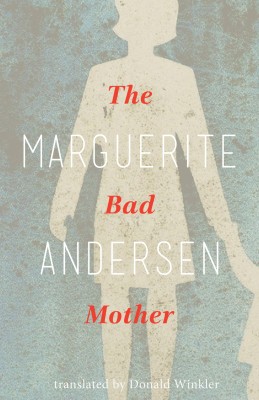In the 1970s, Marguerite Andersen compiled one of the first feminist anthologies in Quebec, Mother Was Not a Person. Many books later, on the cusp of her ninth decade, she picked up her pen again to reconsider one mother in particular: herself.
A short, sometimes poetic autobiographical account, The Bad Mother takes Rousseau’s Confessions as its model, “but,” as Andersen says in her dedication, “in the feminine.” She might more precisely have said, “in the maternal,” for although the story of her life as she writes it here is her struggle to live fully as a person, it is told entirely in relation to her identity as a mother.
Like most confessions, it presents itself as an admission of wrongdoing, although it might also be read as an effort to forestall accusation; at times she protests too much. The risk in confessional literature is that the reader, called upon to judge the writer, will do just that; it takes great skill to craft a story that compels the reader beyond the gossip value of “bad” behaviour.

The Bad Mother
Marguerite Andersen
Translated by Donald Winkler
Second Story Press
$19.95
paper
208pp
9781927583975
Beyond the specific questions of whether she was a bad mother to move her children “to six different countries, on three continents,” to allow her brutal husband to beat her young son when he was having trouble adjusting to kindergarten, or to more or less abandon each of her sons in turn while struggling to leave the abusive husband, start a career, and begin a new relationship, are larger ones. How does one make a life? What are the pressures brought to bear by gender, poverty, violence? And: what choices are possible?
The Bad Mother is more prose poem than traditional essay. Written in short sentences arranged in broken lines on the page, the language is clear and sometimes evocative, especially when Andersen is talking about the Tunisian landscape and details of daily life. A description of bathing her two toddlers is supremely sensual, a lovely and engaging moment of simple happiness.
Yet, for a book that purports to be a confession of bad mothering, a painful and contentious issue for feminists and others alike, The Bad Mother lacks emotional resonance. Andersen maintains a cool calm; although she expresses remorse, it feels distant. Moreover, the book begins with a conversation in which the author’s son reassures her that she is “getting all worked up over nothing.” So even before beginning the story, the reader knows Andersen was not such a bad mother after all. Rather than a confession, The Bad Mother is an apologia.
Written in French, Andersen’s second language and that of most of her written work, The Bad Mother has been rendered in graceful and lucid English by Donald Winkler. mRb






0 Comments